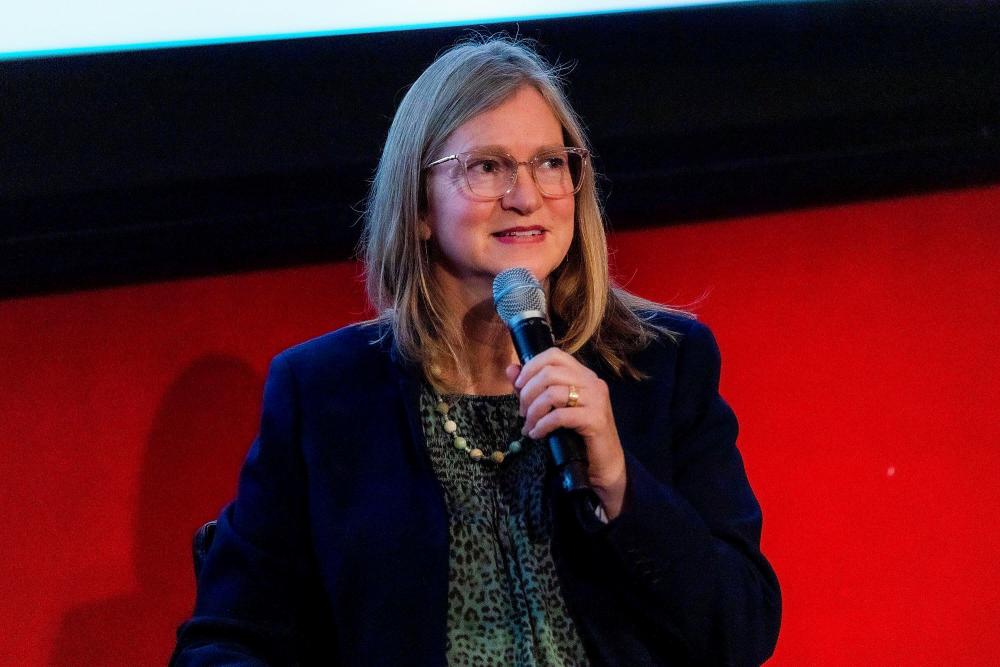Donald Trump’s push to repurpose the US Environmental Protection Agency (EPA) amid funding cuts and staffing losses poses a huge threat to water safety and environmental advances in one of the big environmental success stories in the US in recent decades: the clean-up of the Hudson River.
Once a byword for environmental degradation, the Hudson River is now recovering, in part due to the work of Riverkeeper, a non-profit environmental organization that established a model of legal activism for water protection and inspired more than 300 programs globally. It is also where Robert F Kennedy Jr cut his teeth as an environmental lawyer, before becoming a senior member of Trump’s rightwing cabinet.
The political threat to America’s environment generally and more specifically the work of Riverkeeper has shocked the organization’s president, Tracy Brown, who spoke to the Guardian from its headquarters in the Hudson River commuter town of Ossining.
She was mulling the impact of EPA administrator Lee Zeldin’s latest salvo: the termination of $14bn in Biden-initiated grants to three climate groups, now blocked by a federal judge, alongside plans to eliminate 1,155 chemists, biologists, toxicologists, and other scientists from the EPA’s office of research and development.
“No one at the EPA was prepared to be so attacked and cannibalized by their own leadership and they don’t have a playbook on how to cope. It’s hard to get one’s head around what we’re losing here in terms of resources, momentum, knowledge and trust. It’s a pandemic-level shock to the system, and the effects could last for decades,” Brown said.
The game of cat-and-mouse between the administration and the courts will take time to play out, but the implication is clear: reliance on federal government environmental research is in jeopardy and with it the efficacy of groups such as Riverkeeper that rely on EPA data to direct their efforts, including climate change and industrial contamination assessments.
“We’re in a moment where the environment is changing. We’re seeing climate changing the conditions we’re living in and need to be leaning into science to find out what is changing and how we do better to be prepared for the changes,” Brown said, palpably frustrated. “But right at that moment we’re trying to understand what’s changing, we’re losing research.”
For Riverkeeper and other groups, this means building up scientific knowledge to move from Hudson River restoration work toward adaptation work, including the measures to mitigate the impact of flooding from the increased frequency of heavy rain events that cause the loss of habitat and property.
One of those areas is the removal of industrial-era dams from tributary rivers and streams to allow fish to reach spawning grounds they have been cut off from and slow flooding. But removing old paper and textile industry dams also risks releasing PFA pollution in sediment behind the dams.
Dam removal has already proved to be a contentious issue when Trump blamed the removal of dams in northern California on water shortages to fight the Los Angeles wildfires in January.
Brown fears that federal funding for dam removal along the 315-mile (500km) Hudson is now under question, along with that the hopes of stalling or reversing the loss of freshwater fish stocks.
“The whole program of doing infrastructure-level adaptation projects is in jeopardy,” Brown said. “Those dams weren’t designed for heavy storm events and the kind of pounding they’re taking now, so there is urgency or we could see unplanned dam failures.”
While the proposed rollbacks have hit groups like Riverkeeper, there have been attendant fears of retribution over speaking out among environmentalists. “You’re starting to hear a general sense of fear and paranoia among people doing this work,” Brown said.
In May, Riverkeeper has its big annual river cleanup. “I’m hoping that even if federal support goes down, local community, putting-our-shoulder-to-it support will rise up. People, I think, realize that we’re more on our own and we can’t leave it to government to do the basics,” Brown said.
“There’s been historically an over-reliance on the hand of God perception, people thinking, ‘Oh well, people are swimming, the beaches must be clean.’ The perception of how much the government was doing was already a little overblown in people’s minds and this is a wake-up call.”
Her organization, she said, will have to spend more time on research, publishing data and doing watchdog work.
Becoming more aware and active in local environmental responsibilities could at least reduce the sense of powerlessness inherent in divisive national politics and the government’s ability to come to grips with the climate crisis when it is locked in what Brown called a “zero-sum death battle every four years”.
“Broadly the upside to the climate disaster is that we all come back into right relationship with Earth. We think we have dominion over all things, and clearly we don’t, and that delusion is one of the reasons for the trouble we’re in,” Brown said. “When we have disasters brought about by poor governance it brings us back to a hyper-local place.”
If any environmental organization has shown the promise of self-organization, it would be Riverkeeper, an organization founded by commercial fishers and with a significant conservative gun-and-rod membership. Nearly 60 years after its founding, the Hudson River is one of the healthiest estuaries on the Atlantic coast.
Zeldin, the EPA’s administrator, called the extraordinary series of rollbacks the “greatest day of deregulation our nation has seen”. But the characterization of Republicans as all anti-environment is also wrong, Brown said. “It’s corporate manipulation – a false choice between jobs and clean environment, and it’s tearing us apart.”
But the actions of the Trump administration are confounding. “I was holding out hope for Zeldin, who lives on an island, to acknowledge in his confirmation hearings that climate change is real and state his care for water,” Brown said.
But now those hopes have dimmed.
Read the full article here


